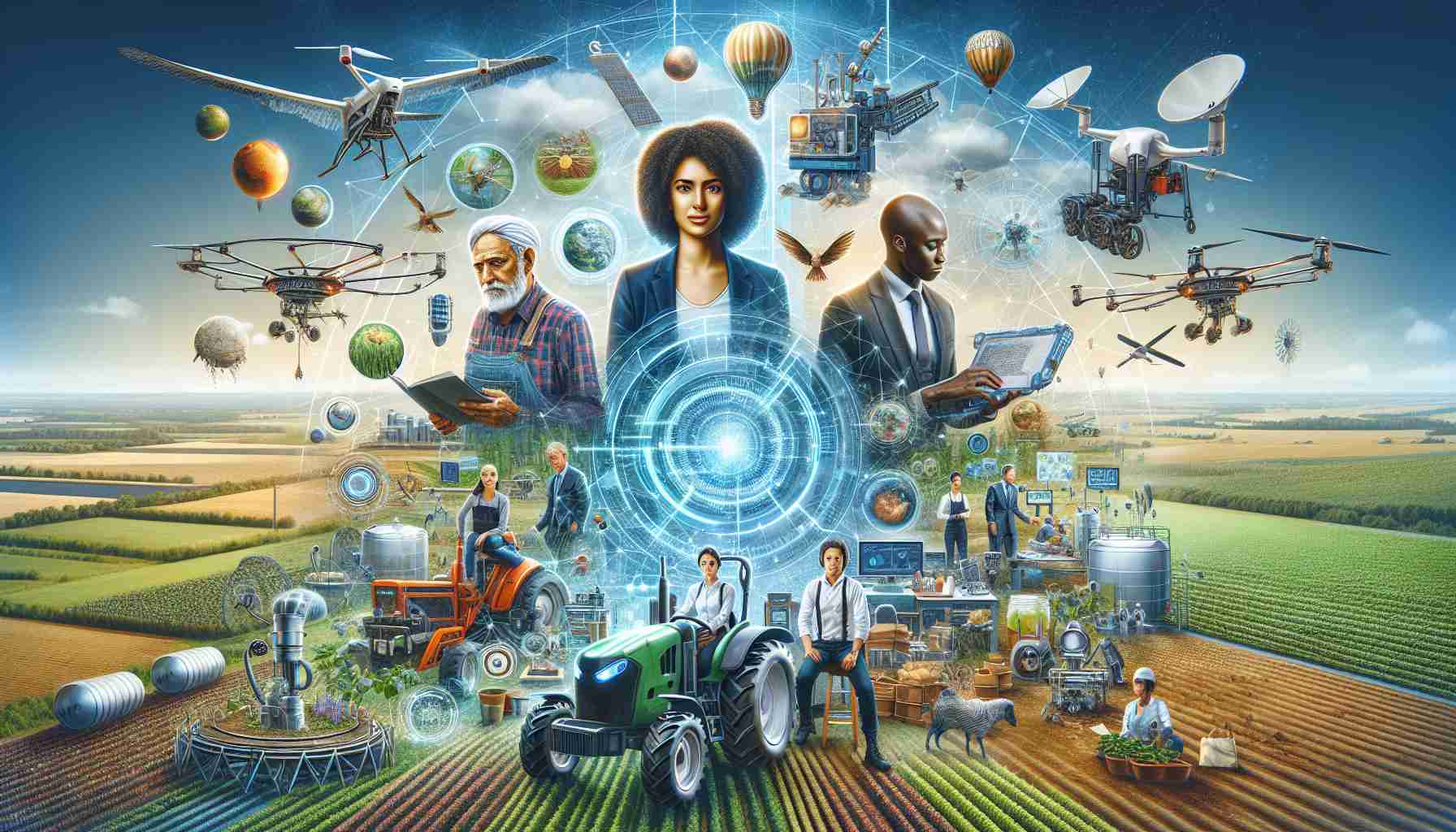- AgTech startups are addressing critical challenges in agriculture amidst climate change and resource depletion.
- These companies leverage advanced technologies like drones and AI to enhance farming productivity.
- Successful integration of technology into traditional farming practices is essential for future food security.
- Increasing consumer demand for transparency drives these startups to establish trust in food sourcing.
- Despite their promise, AgTech startups face significant hurdles to achieve widespread adoption.
- The future of agriculture may hinge on the innovations and adaptability of these emerging companies.
As the sun rises over sprawling fields, a silent revolution is underway in the world of agriculture. Enter the dynamic realm of AgTech startups, where creativity meets necessity to tackle some of the most pressing challenges of modern farming. Rhishi Pethe, a savvy agrifoodtech consultant, has his finger on the pulse of this movement, exploring whether these innovative companies hold the keys to transforming our food systems.
In a landscape plagued by climate change and dwindling resources, traditional methods are becoming obsolete. Enter these bold new players who are harnessing cutting-edge technology, from drones to AI, to boost productivity and sustainability. Imagine crops thriving in urban settings and farmers using real-time data to optimize yields—this is not the distant future, but the exciting present.
Pethe emphasizes that while many startups emerge with promising solutions, the path to widespread adoption is fraught with challenges. It’s a race against time, where successful integration of tech into traditional practices could mean the difference between thriving farms and food shortages.
As consumers become increasingly aware of where their food comes from, these startups are stepping up, fostering transparency and trust. They’re not just about profit; they’re on a mission to ensure that future generations inherit a sustainable food system.
In this fast-evolving landscape, the takeaway is clear: AgTech startups, armed with innovation and determination, have the potential to reshape the future of agriculture—if they can overcome the hurdles ahead. Will they succeed? Only time will tell.
Will AgTech Startups Save Our Farms? Explore the Future of Agriculture!
# The Rise of AgTech Startups: Transforming Agriculture for a Sustainable Future
As agricultural challenges mount due to climate change, resource depletion, and increasing global population, AgTech startups are emerging as pivotal players in the quest for sustainable farming solutions. These innovative companies leverage advanced technologies such as drones, AI analytics, IoT devices, and sustainable farming techniques to redefine traditional agriculture. Below are some relevant insights into the innovations, trends, and challenges facing AgTech today.
## Innovations in AgTech
1. Precision Agriculture: Utilizing drones and satellite technology, farmers can monitor crop health, assess soil quality, and optimize irrigation practices in real-time, improving both yield and resource efficiency.
2. Biotechnology Advances: Genetic engineering and CRISPR technology are enabling the development of crops that are more resilient to climate stressors, pests, and diseases, reducing the need for chemical inputs.
3. Vertical Farming: Urban agriculture is being revolutionized through vertical farming techniques, which utilize limited space more efficiently while reducing transportation costs and carbon footprints.
## Trends to Watch
– Sustainability Focus: There’s a growing consumer preference for sustainably produced food. Companies that emphasize eco-friendly practices are likely to gain traction in the market.
– Data-Driven Farming: The integration of big data and AI in agriculture allows for predictive analytics that can forecast trends, enhancing decision-making for farmers.
– Public-Private Partnerships: Collaboration between governments and AgTech startups is becoming increasingly essential for funding innovation and distributing new technologies.
## Key Insights
– Market Forecast: According to recent reports, the global AgTech market is projected to grow from $16 billion in 2020 to over $40 billion by 2025, driven by the need for sustainable farming solutions.
– Consumer Awareness: As consumers show increasing interest in the origin of their food, transparency in supply chains is becoming vital, offering AgTech startups an opportunity to build brands around trust.
## Questions and Answers
1. What are the main challenges AgTech startups face?
– AgTech startups often face challenges such as high initial investment costs, regulatory hurdles, and resistance from traditional farmers accustomed to established practices. Additionally, scaling their technologies to meet diverse agricultural needs may prove difficult.
2. How do AgTech startups contribute to sustainability?
– These startups promote sustainability by reducing waste, optimizing resource use, and enhancing ecosystem health. By employing precision agriculture techniques and developing new sustainable farming practices, they help to decrease the environmental impact of agriculture.
3. What role does consumer behavior play in the success of AgTech?
– Consumer behavior plays a crucial role as awareness and demand for sustainable food products grow. AgTech startups that align their products with consumer values, such as health and environmental sustainability, are more likely to prosper.
For more information on the innovations transforming agriculture today, visit AgFunder.
